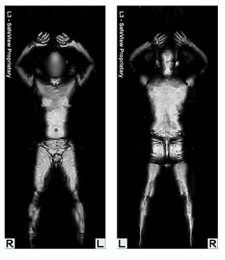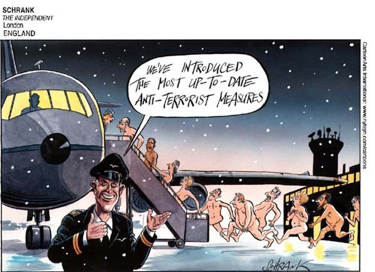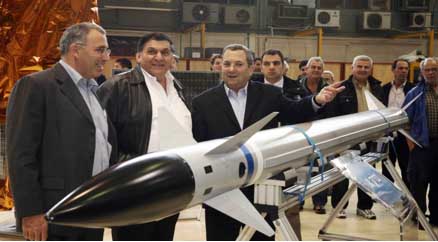By Rahnuma Ahmed
In the aftermath of the `underwear’ bomber incident, an increasing clamour of voices insist that the rest of the world should learn airport security from Israel, and El Al, its national airlines.
Their record is impressive, writes Christopher Walker. Global Traveller magazine has named El Al, the “world’s most secure airline” (`Air security: rest of world needs to learn from El Al,’ The First Post, 21 January 2010).
Their deterrents, both seen and unseen, are most effective. The Israeli Defence Forces (IDF) provide updated specifications of weapons and explosives likely to be used by terrorists and militants. Security staff, often women, trained in psychological techniques begin questioning passengers as they approach the terminal. El Al terminals the world over, are patrolled by plain-clothes agents, fully armed police, and military personnel. Passenger names are checked at passport control with FBI, Canadian Security Intelligence Service, Scotland Yard, Shin Bet (Israel’s domestic security service), Interpol and French Deuxieme Bureau databases. To divert missiles, all aircrafts are fitted with Flight Guard Civil Aviation Missile Protection System. All bags are routinely put in a decompression chamber which simulates on-flight pressure needed to trigger explosives. Sky marshals, armed but often in plain-clothes, travel on flights. All these are routine matters.
As is its pro-Jewish racial profiling.
Human rights campaigners the world over may “object” to it, some may think it “shameless,” others may regard it as “blatant” but, Walker writes, its inclusion ensures “thoroughness.” After all, what is more important? Differential treatment toward some passengers? Or, risking the lives of all?
Absence of the Israeli-kind-of security in Britain’s recent measures, is likely to lead to failure. (Only) No-fly lists. (Only) Cancelling all flights between Britain and Yemen. (Only) Seamlessly tracking and disrupting all terrorist movements. (Only) Introducing full body scanners at all British airports. These are just “not enough,” says Walker. Nothing short of racial and religious profiling, and fitting aircrafts with anti-missile systems?will do.
Delia Lloyd is similarly enthusiastic about Israel, which has “pioneered” and “perfected” aviation security. A full-scale Israelification of US and UK airports is needed, and even though sheer numbers, costs of re-training employees make it daunting, we should start thinking of “moving towards the Israeli model.” (`Airport Security: Is Israel the Answer,’ Politics Daily, 1/08/10).
Not everyone agrees. As a reader comments on Lloyd’s piece: “No, Israel isn’t the answer, Israel is the problem. Why do you think we are the object of attacks? Because we prop up Israel, and behave like Israel.” [TAWNY JONES 5:58 AM, JAN 8, 2010; CHECKED AT 21:26, 24 JANUARY, HAS BEEN REMOVED]
Interestingly enough, the clamor for Israelification began soon after serious doubts and questions surfaced about what actually occurred at Schipol airport in Amsterdam.
But there are questions about other airports too. About private firms who were in charge of security. Charles de Gaulle airport in Paris (2001). Logan airport in Boston (2001). For the underground, as well. The London Underground (2005).
But more on Schipol first. In an earlier column (`Padded Underwear,’ 10 January 2010), I’d written that airport security in Amsterdam is contracted to an Israeli controlled company; the same company which developed the concept of security profiling.

http://www.securityinfowatch.com/files/imagecache/article_main/pictures/apparatus/TSA-millimeter-wave.jpg

http://z.about.com/d/politicalhumor/1/0/V/6/3/Naked-Airport-Security.jpg
Newer information since: it’s called International Consultants on Targeted Security (not `ICTS Europe,’ a different company), and was established in 1982 by former agents of Israel’s internal Shin Bet security service and former El Al airline security agents. It is Netherlands-based and has two subsidiaries (I-SEC, and its daughter company P-I, or Pro-Check International). These provide security services consisting of consultation, instruction, training, inspection and supervision. Links between El Al security and Mossad (Israeli intelligence) are very close, according to Gordon Duff of Veteran Today, with “abundant cross-pollination of senior personnel back and forth.” ICTS’s senior management are all ex-Israeli security officials, many work for El Al security (e.g., retd Major General Amos Lapidot, an ICTS board member, had served as a commander of the Israeli Air Force).
Abdulmutallab’s father had gone to the US embassy in Nigeria, in November. His son, he said, was being influenced by “unidentified extremists,” and was planning to travel to Yemen (incidentally, Nigerian intelligence services are tied to, and trained by, Israel). Intelligence officials, said president Obama, had failed to “connect those dots.”
But being on a terrorist watchlist means (a) not being permitted to board a commercial airline
(b) being put under immediate surveillance. In Abdulmutallab’s case, not even his US visa was withdrawn. Well. Okay. It? could happen. It did. But what about security officers at Schipol? Despite his “age, name, illogical travel route, high-priced ticket purchased at the last minute, his boarding without luggage (only a carry on) and many other signs” they were not suspicious (Haaretz, 10 January 2010). Despite the fact that ICTS is renowned for using security measures “pioneered” in Israel: assessing the threat level of passengers based on name, age, nationality and behaviour during questioning.
The official account gradually began losing credibility. Kurt Haskell (American lawyer, passenger) recalled having seen a wealthy looking Indian man with Abdulmutallab at Schipol, (“an odd pair”). He heard the elder man tell the ticket agent, he doesn’t have a passport, he’s Sudanese, he needs to board the plane. “We do this all the time.” The agent suggested they go and talk to the manager. The next thing he knew, Abdulmutallab was on the same flight, trying to ignite explosives.
At first Dutch security insisted, Abdulmutallab had a passport. Later, it was revised: he did not have to “Go through normal passport checking procedures” but he did undergo “a security interview and check” (But if he did not have a passport, how could they have known that he had a valid US visa?) Haskell says, what is important is the presence of an apparently successful accomplice who can “skirt normal passport boarding procedures in Amsterdam.” Dutch security says there was no Indian man, but it has not released any video footage. “I have no doubt that if the video indicated that my account was wrong… [it] would have already swept over the entire world wide web.” As did video footage of the death of Iranian protestor Neda Agha-Soltan.
Another passenger, Richelle Keepman says, a man with a camcorder had calmly and without interruption filmed the entire incident (“he was standing up [when] we were supposed to be seated”). After the plane landed in Detroit, FBI agents arrived with sniffer dogs, handcuffed a younger Indian man, and took him away. Nothing has since been heard about him, or the person who video-recorded the foiled attempt. Interestingly enough, FBI’s account of what happened has changed 5 times, while Haskell’s remains unchanged.
Richard Reid, shoe bomber (22 December 2001): Reid attempted to board an El Al flight from Schipol to Tel Aviv six months before the attempted shoe bombing. El Al security identified him as a terrorist suspect (one-way ticket, cash payment) but instead of handing him over to Dutch security, they allowed him to board the plane so that his movements during his 5 days in Israel could be monitored by Shin Bet. Six months later, he tried to ignite his shoe on AA flight 63 from Paris to Miami. Israel had not informed British, American, French or any other security agency of their concerns about Reid. He later claimed that El Al had failed to detect the explosives in his shoes.
The name of the security company which allowed him to board the AA flight in Paris? ICTS.
London Bombings (7 July 2005): A series of successive and coordinated bomb attacks on 3 London Underground trains (and a double decker bus) killed 56 people. Calls for a full, independent inquiry dismissed by prime minister Tony Blair, a “ludicrous diversion.”
Security for London’s Underground train network was provided by Verint Systems (Israeli).
9/11 terror attacks (9 September 2001): ICTS sold services to all 3 airports?Logan International (Boston), Washington Dulles International, Newark International (New Jersey)?from which the four hijacked planes operated on 9/11, including security, sometimes through wholly-owned subsidiaries like Huntleigh USA Corporation. As a 9/11 researcher puts it, this means an Israeli company had “automatic inside access to all of the[se] airports…”
Hours before the House version of the first Patriot Act went to a vote, “technical corrections” were inserted making foreign security companies such as ICTS-International immune from lawsuits related to 9/11. The act was signed into law by president Bush on 26 October 2001.
No independent inquiry has been held on 9/11. According to Thomas Kean, chairman of the official 9/11 Commission, it was “set up to fail.” Pentagon, Federal Aviation Administration, and NORAD officials said things “just so far from the truth.”
And, `the Indian man’? Wayne Madsen, an ex-US navy lieutenant turned investigative journalist and blogger, thinks the attempted terrorist attack on the Detroit-bound plane was actually a false flag operation (covert operation, designed to deceive the public). That it was carried out by the “intelligence tripartite grouping of the CIA, Mossad, and India?s Research and Analysis Wing.”
To assume a RAW connection just because the man was Indian, is surely stretching it a bit too far? But then, I remember Israeli prime minister Netanyahu’s words, ?Our ties with India don?t have any limitation??
Published in New Age, 25 January 2010




